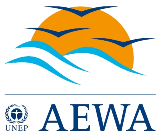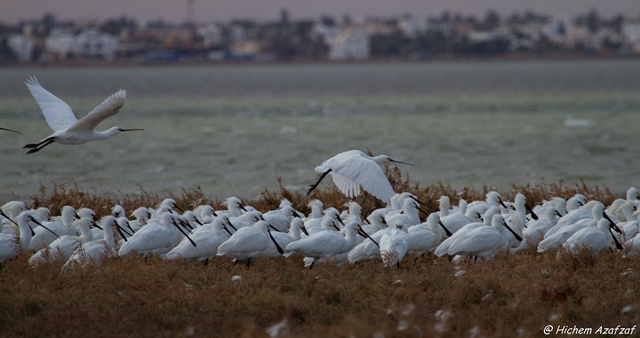|
|
|
|
Conclusions of the Workshop IX Spoonbill Workshop AEWA Eurasian Spoonbill International Expert Group (ESIEG) Djerba, Tunisia 14 – 18 November 2018
Conclusions WORKSHOP
TRENDS AND MAIN RESULTS
COMMUNICATION
ESIEG ORGANISATION
NEXT STEP
Djerba island, Tunisia, 18th November 2018 AEWA - Eurasian Spoonbill International Expert Group
IX International Workshop Eurasian Spoonbill international Expert Group IX International Workshop Eurasian Spoonbill international Expert Group Djerba Island, Tunisia, 14 to 18 November 2018
This workshop organized by the AEWA Eurasian Spoonbill International Expert Group (ESIEG) is open to network members and any participant with an interest in wetland conservation and waterbird populations. It will be of relevance to staff from a variety of nature conservation organizations, including scientists, statutory agencies, NGOs, as well as volunteers and students. The workshop will provide a unique opportunity to exchange and strengthen connectivity between people involved in studying and managing wetlands for the conservation of Eurasian spoonbill and associated waterbird populations. The aim is to share information in a friendly atmosphere and build practical know-how about drivers of population regulation and ways to improve management effectiveness in habitat restoration. In particular, the interest of the group is to strengthen the network with North African, Eastern Mediterranean and Asian countries. We expect the same success as the previous workshop when 35 researchers and managers from 17 countries attended the workshop in Tour du Valat, Southern France in 2015.
Preliminary program Provisional agenda items for 9th workshop will focus on how to obtain more knowledge about the status of the subspecies archeri resident to Red sea and balsaci resident from Mauritania; evaluation of flyway delineations in East Europe and Asia; renewal or extension of the 2008 international action plan ; and sharing knowledge acquired from new GPS loggers deployed to spoonbills. The workshop will be divided into 4 sessions: Abstracts for oral and poster presentations should be submitted online (left panel)
Plenary talk Prof. Theunis Piersma, Dutch professor at the University of Groningen (https://teampiersma.org/), will present a plenary talk untitled: “Underpinning the conservation of spoonbills and other migrating waterbirds: monitoring the weak links in ‘chains’ of wetland habitats”
Registration and fees The registration deadline is now 15 August 2018. The organization committee provides a unique package that includes registration fees, accommodation and food. The registration fees for the Workshop includes:
Note: if you do not take the package; breakfast, dinner and accommodation are not included in registration fees (please see below). Package includes accommodation in a Hotel (https://www.vinccihoteles.com/eng/Hotels/Tunisia/Djerba/Vincci-Djerba-Resort) for the whole workshop (four nights), including food (breakfast and dinner). The package costs 260€ per person for a shared room and 320€ per person for a single room. Students with official documents can benefit for a 35€ discount. Package should be booked through the website. Payment should be adressed at the time of the registration (before 15 August) through bank transfer. Association « Les Amis des Oiseaux » (AAO) A copy of bank transfer should be adressed by email to the workshop technical secretary secretariat@aao-birdlife.tn. |
| Online user: 1 | RSS Feed |

|


